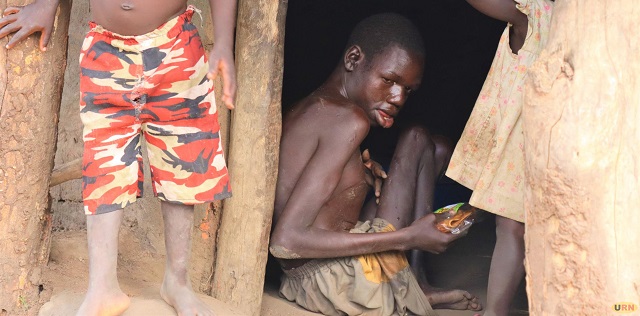
Lira, Uganda | THE INDEPENDENT | A team of dieticians and laboratory technologists in the Department of Public Health at Lira University is developing at least ten different recipes to improve the nutrition of children suffering from nodding syndrome in Acholi and Lango sub-regions.
The development follows a baseline survey by Lira University and NARO Consortium in January 2021, which revealed that the rate of wasting and stunting among children in Acholi and Lango sub-regions is above the national and global prevalence, respectively.
The survey was centered on 48 health centers in Kitgum, Pader, Nwoya, and Gulu districts in the Acholi sub-region, and Lira, Oyam, Kole, and Alebtong districts in Lango sub-region, establishing high levels of malnutrition among children suffering from nodding syndrome.
Freda Amito, a lecturer in the Department of Public Health at Lira University, says that they have traversed the eight districts for intervention and profiled the locally available food to be used to develop the recipe.
She hopes the recipes will be ready by the end of this month so that distribution among the target population starts in the next quarter.
Besides children suffering from nodding syndrome, Amito says the food will also be given to children with moderate acute malnutrition, also known as wasting. Those on the nutrition will then be monitored for half a year before the final report is made on whether or not the recipes work.
Amito notes that the food will mainly be rich in nutrients that children suffering from nodding syndrome lack, to improve their health. She says the food will come in many forms such as flour which can be turned into porridge, solid food, and paste among others.
Amito says after preparing the food recipe, they will cook and subject it to several tests in the lab to find other nutrients still present. Besides, the foods will be given to professionals and selected members of the community to taste for flavor and smell and eliminate or keep the recipes depending on the comments from the tasters.
Amito says foods will also be tested for the presence of metals or toxins so that the lives of the users aren’t put at more risk, and an ethical body will also approve it before it is given to the beneficiaries. During the food profiling exercise which ended on Sunday, they also identified the families that will benefit from the intervention.
Bonny Aloka, an Assistant Lecturer in the Department of Public Health who is also on the team developing the recipe says the food will be given free for the beneficiaries. Aloka says the caretakers of the patients will also be taught how to make the recipes so that they can easily get them when the distributed ones are finished.
Joe Otto, the coordinator of nodding syndrome in Labongo Akwang sub-county in Kitgum district, says the development is great because most families with children suffering from nodding syndrome are too poor to afford a proper diet for their children.
Otoo says families with nodding syndrome spend most of their time taking care of the children, instead of engaging in income-generating activities to provide a balanced diet for their children.
During a Christmas lunch with the children suffering from nodding syndrome in Tumangu in Kitgum district in December 2021, Dr. David Kitara Lagoro, a lecturer in the Department of Medicine and Biochemistry at Gulu University noted that proper nutrition is very vital in the general improvement of children suffering from nodding syndrome.
Dr. Lagoro, who has been researching nodding syndrome since 2012, noted that when children with nodding syndrome were being kept at the Rehabilitation Centre in Omoro district, most of them improved because they were well taken care of nutritionally.
*****
URN
 The Independent Uganda: You get the Truth we Pay the Price
The Independent Uganda: You get the Truth we Pay the Price



Thanks for thinking about those children. God bless you.